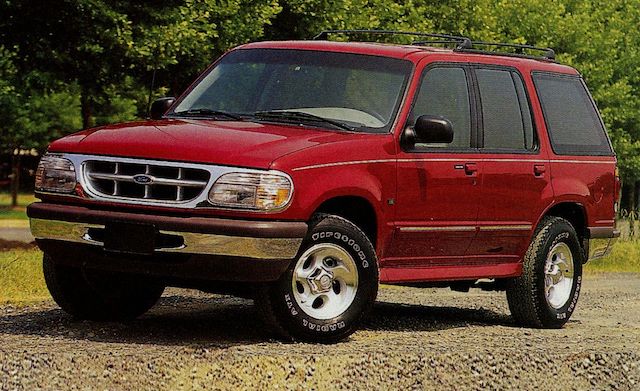In the realm of SUVs, the 1996 Ford Explorer holds a significant place in automotive history. While it gained popularity as a family-friendly and versatile vehicle, it also faced a multitude of issues during its production year. In this article, we will delve into the challenges that plagued the 1996 Ford Explorer, examining its mechanical, safety, and reliability concerns. By understanding these issues, potential buyers and enthusiasts can make informed decisions and gain insight into the evolution of the Explorer over the years.
Ford Explorer: Mechanical Issues
The 1996 Ford Explorer garnered attention for various mechanical problems that affected its overall reliability. One prominent issue was the transmission, with many owners reporting transmission failures, including slipping gears, delayed shifting, and complete breakdowns. These problems not only led to frustrating driving experiences but also incurred substantial repair costs. Some cases even necessitated full transmission replacements, highlighting the severity of the issue.
Another significant mechanical concern stemmed from the engine. Owners of the 1996 Explorer frequently reported engine overheating, coolant leaks, and head gasket failures. These issues posed a threat to the vehicle’s performance, leading to power loss and potential safety hazards. Additionally, electrical problems such as malfunctioning sensors and wiring issues further compounded the reliability woes faced by owners.
Safety Recalls and Investigations
Beyond mechanical issues, the 1996 Ford Explorer encountered safety-related challenges that raised concerns among owners and regulatory agencies. One notable recall involved faulty cruise control switches, which had the potential to cause fires. This recall affected millions of Ford vehicles, including the 1996 Explorer, necessitating the replacement of the defective switches to mitigate fire risks. Furthermore, investigations conducted by the National Highway Traffic Safety Administration (NHTSA) shed light on door latch failures and rear-end accidents involving the 1996 Explorer, underscoring the safety implications associated with the vehicle.
Ford Explorer: Consumer Impact and Response
The numerous issues faced by the 1996 Ford Explorer undoubtedly had a significant impact on consumer satisfaction and the overall perception of the vehicle. Owners were left frustrated and burdened by the costly repairs and unexpected breakdowns. Ford responded by implementing recalls and issuing technical service bulletins to address specific problems. However, the widespread nature of the issues tarnished the Explorer’s reputation, eroding consumer confidence in the model.
Lessons Learned and Improvements
The challenges encountered by the 1996 Ford Explorer prompted Ford to make notable improvements in subsequent generations of the vehicle. The company took measures to address transmission and engine issues, implementing design changes and refining components to enhance reliability. Additionally, advancements in safety features and rigorous testing procedures have resulted in safer and more dependable versions of the Explorer in recent years. Ford’s commitment to continuous improvement showcases their dedication to learning from past challenges and delivering better products to their customers.
The 1996 Ford Explorer faced a range of mechanical, safety, and reliability issues that impacted its reputation and consumer satisfaction. Problems with the transmission, engine, and safety recalls highlighted the challenges experienced by owners during that year. However, it is important to acknowledge the subsequent improvements made by Ford in addressing these issues in later iterations of the Explorer. By understanding the difficulties faced by the 1996 model, potential buyers and enthusiasts can make informed decisions and appreciate the evolution of this iconic SUV over time.
Read articles about other American made cars.
